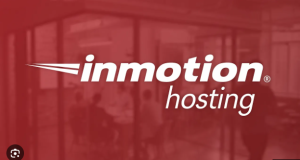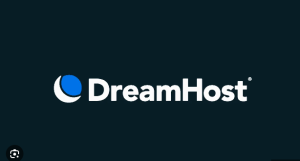Introduction (150 words): Introduce the significance of reliable hosting for websites and the growing popularity of Netlify. Highlight the importance of a thorough evaluation before choosing a hosting service.
What is Netlify? (200 words): Provide an overview of Netlify, explaining its core functionalities and its position as a modern web development platform. Highlight its primary offerings like hosting, continuous deployment, and serverless backend services.
Key Features of Netlify (400 words):
- Easy Deployment: Detail how Netlify simplifies the deployment process with Git integration and automatic builds upon code commits.
- Scalability: Discuss Netlify’s ability to handle traffic spikes effortlessly with its global content delivery network (CDN).
- Developer-Friendly Environment: Highlight features like instant rollbacks, branch deployments for testing, and collaboration tools for teams.
- Serverless Functions: Explain the benefits of serverless functions for handling backend operations without managing servers.
- Analytics and Monitoring: Discuss the analytics and monitoring tools provided by Netlify for tracking website performance and user behavior.
Pros and Cons of Netlify (600 words): Pros:
- Simplicity and Speed: Discuss how Netlify simplifies the deployment process and enhances website loading speed.
- Security Measures: Highlight the security features such as HTTPS, DDoS protection, and automated backups.
- Continuous Deployment: Emphasize the benefits of automated deployment and its impact on development workflow.
- Support and Documentation: Discuss the quality of support provided by Netlify and its extensive documentation.
Cons:
- Limited Backend Customization: Address any limitations regarding backend customization or specific server configurations.
- Cost for Advanced Features: Discuss how some advanced features might require higher-tier pricing plans, potentially impacting budget-conscious users.
Comparison with Other Hosting Services (500 words): Compare Netlify with other popular hosting services like AWS, Heroku, or GitHub Pages. Highlight the unique selling points of Netlify in terms of ease of use, pricing, and specific functionalities.
Real User Experiences (300 words): Include testimonials or experiences from real users, discussing their satisfaction or concerns while using Netlify as their hosting platform.
Conclusion (250 words): Summarize the key points discussed in the article, reiterate the strengths of Netlify as a hosting choice, and encourage readers to consider their specific website needs before making a decision.
Final Thoughts (100 words): Share a personal opinion or insight on the future of hosting services, considering the evolving landscape of web development.
Title: Is Netlify a Good Host? Exploring its Features, Performance, and Reliability
Introduction: When it comes to choosing a web hosting service, businesses and developers seek reliability, speed, and convenience. Netlify, a cloud-based platform, has gained attention for its simplicity, advanced features, and focus on modern web development practices. In this comprehensive review, we’ll delve into the various aspects of Netlify to determine if it stands as a top-tier hosting solution.
1. Understanding Netlify: Netlify is a cloud-based hosting and automation platform designed primarily for web projects, offering a seamless workflow for deploying, hosting, and managing websites and web applications. Its key selling points include a user-friendly interface, continuous deployment, serverless functions, and more.
2. User-Friendly Interface: One of Netlify’s standout features is its intuitive dashboard and user interface. With a clean design and straightforward navigation, users can easily manage their projects, domains, and settings without encountering steep learning curves.
3. Deployment Processes: Netlify simplifies the deployment process by providing seamless integration with Git repositories. The platform automatically builds and deploys websites whenever changes are pushed to the repository, ensuring a hassle-free and efficient workflow for developers.
4. Performance and Speed: Speed is crucial for website performance. Netlify’s global content delivery network (CDN) ensures quick loading times by distributing content across various servers worldwide, reducing latency and enhancing user experience, regardless of the visitor’s location.
5. Scalability and Reliability: Scalability is a critical aspect of web hosting, especially for growing websites. Netlify offers scalable infrastructure, ensuring that websites can handle traffic spikes without compromising performance. Additionally, its reliable uptime ensures minimal downtime, crucial for businesses relying on continuous online presence.
6. Security Measures: Netlify prioritizes security, providing features like HTTPS support, DDoS protection, role-based access control, and automated backups. These robust security measures instill confidence in users regarding their website’s safety and data protection.
7. Developer-Friendly Features: For developers, Netlify offers a range of features such as serverless functions, form handling, split testing, and A/B testing, empowering them to create, test, and deploy complex web applications with ease.
8. Pricing Structure: Netlify offers a free tier suitable for small projects, providing essential features like continuous deployment and global CDN. However, its premium plans unlock advanced functionalities such as analytics, increased build minutes, and team collaboration tools. Analyzing the pricing structure in detail helps users determine the best-suited plan for their requirements.
9. Customer Support and Community Engagement: A reliable support system is crucial for any hosting service. Netlify provides extensive documentation, a knowledge base, community forums, and responsive customer support channels. Evaluating user experiences and community engagement can shed light on the level of support users can expect.
10. Drawbacks and Limitations: Despite its strengths, Netlify might have limitations that users should consider. These could include pricing for high-traffic websites, constraints on resource-intensive applications, or certain feature limitations in comparison to dedicated hosting solutions.
Conclusion: Netlify’s blend of simplicity, powerful features, and developer-friendly tools positions it as a competitive hosting solution for modern web projects. Its intuitive interface, robust performance, scalability, and security measures make it an attractive choice for businesses and developers seeking a reliable and efficient hosting platform.
Final Thoughts: In the ever-evolving landscape of web hosting services, Netlify’s continuous improvements and commitment to innovation make it a commendable choice. By weighing its features against specific project requirements and considering its pricing structure, users can make informed decisions regarding hosting their websites or applications on this platform.
Introduction (150-200 words)
Begin by introducing the concept of website hosting and its significance for online businesses. Briefly mention the importance of choosing a reliable hosting provider and introduce Netlify as a potential solution.
Overview of Netlify (300-400 words)
- What is Netlify?
- Define Netlify and its primary services.
- Features and Offerings
- Discuss the range of services provided by Netlify, such as CDN, continuous deployment, serverless functions, etc.
- Ease of Use
- Explain how easy or challenging it is to get started with Netlify.
Performance and Reliability (400-500 words)
- Speed and Loading Times
- Discuss Netlify’s performance in terms of website loading speed and its CDN capabilities.
- Uptime and Reliability
- Review Netlify’s uptime statistics and reliability in keeping websites accessible.
- Scalability
- Evaluate how Netlify handles scalability as a website grows in traffic and complexity.
Pricing and Plans (300-400 words)
- Plan Options
- Detail the different plans offered by Netlify and their respective features.
- Cost-effectiveness
- Analyze the value provided by each plan in relation to its cost.
User Experience and Support (400-500 words)
- User Interface
- Evaluate the user-friendliness of Netlify’s dashboard and interface.
- Customer Support
- Discuss the quality and responsiveness of Netlify’s customer support system.
Security and Compliance (300-400 words)
- Security Measures
- Explain the security features implemented by Netlify to protect websites.
- Compliance Standards
- Discuss if Netlify adheres to industry compliance standards.
Use Cases and Customer Reviews (400-500 words)
- Case Studies
- Highlight real-life use cases where Netlify has been successful.
- Customer Testimonials
- Share positive and negative reviews from users of Netlify.
Comparison with Other Hosting Providers (400-500 words)
- Comparison with Competitors
- Compare Netlify with other popular hosting providers, emphasizing its unique features or drawbacks.
Conclusion (150-200 words)
Summarize the key points discussed in the article and provide a final verdict on whether Netlify is a good hosting platform based on the analysis done throughout the article.



